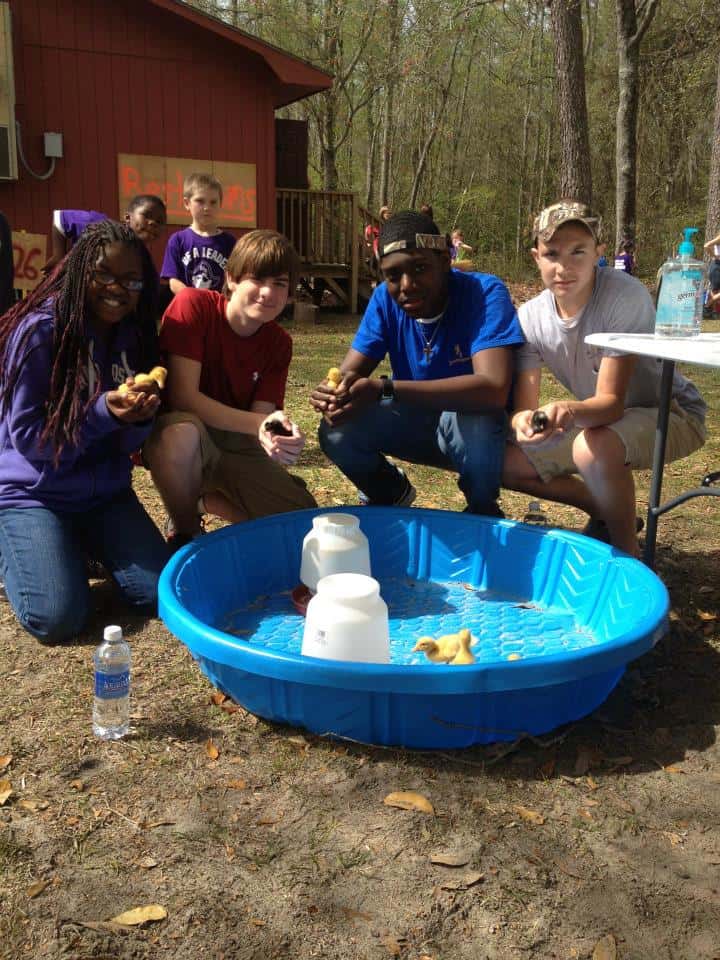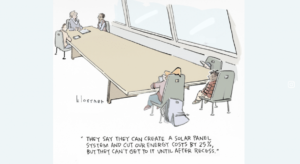Lessons from Horry County

We have been following the innovative leaders that make up the Horry County School District and are consistently impressed by their willingness and drive to make change for their students. This public district located in South Carolina is working to turn around Whittemore Park MS, a low performing high poverty school through prioritizing a highly student-centered experience for their kids.
Below, Beth Havens, who works with innovation projects in the district, shares a few of the lessons they have learned in the process of creating a more personalized environment for their students – lessons that leaders are using throughout the district.
The Power of Experts as Activators– Some key lessons learned for us have been around the teacher as learner and the power of experts as activators. The term activators is used as defined and discussed in Fullan and Donnelly’s Alive in the Swamp in their reflections about Hattie’s meta-analysis of learning practices on student achievement. The term includes the notions of “reciprocal teaching – where student and teachers are both ‘teachers’ learning from each other; regular, tailored feedback; teacher–student verbal interaction; meta cognition – making explicit the thinking process; challenging goals – setting ambitious and achievable learning goals.”
Transformation is not a DIY project – You have to go beyond just reading articles, discussing the latest research, and visiting exemplar schools. Partnerships with current experts in the field are key. Our ability to build a network of support has been possible by the NGLC grant and by affiliation with the NGLC learning community. We are incredibly fortunate to be working with three teams of “master teachers” in our partnerships with Education Elements, the Quaglia Institute for Student Aspirations, and the Educational Policy Improvement Center. While the focus of each partner is, in a sense, on a different element of transformation – blended learning, student voice and aspirations, and college and career readiness – their teams who work side-by-side with teachers are effecting rapid and deep change because for teachers they model as well as “teach” around the notion of teacher as activator.
Deeper Learning through Professional Development – Find support from master teachers and experts-in-the-field, who probe, engage and challenge – who have a genuine understanding of the complexities of working in real public school buildings with real public school children. Deep learning does not take place through canned slide decks delivered in a monotone, nor does it occur in isolated after-school hours labeled “weekly staff development session” or in “stand and deliver” messages about the urgency of change. Deep learning occurs when teachers (and building leaders and district leaders) have opportunities to work with experts-in-the-field who are themselves master teachers, who understand that transformation is an ever-unfinished journey, and who are capable of personalizing and individualizing for the adult learners who are as different and unique in their skills and perspectives as the students with whom these adult learners work.
The Power of the Whole Village – Though certainly a cliché, we have found that it really does take the whole village, and there is no shortcutting this foundation for thinking about transformation. As hard as teachers may work, their time with students is, in a sense, limited to the seven or so hours per day in which they are in the classroom. To shift the culture of the building takes Herculean efforts on the part of all of the villagers, and we are seeing both the emergence and the effects possible when all of the villagers have agency in and ownership of the village. We could give so many examples, but listed below are a few of these:
- A school custodian who has undertaken leadership of the 100 Point Club, a club that recognizes achievement and improvement of male students in the school by providing activities such as camp-outs and fishing trips.
- An aide who sponsors the Queen’s Club, a club that helps female students learn about everything from etiquette to positive leadership skills.
- An attendance clerk who, when she realized that the district’s new online registration process was overwhelming for parents and guardians who had neither computers nor internet in their homes, sets up a computer area in the office and sits side-by-side with parents/guardians and patiently, for days and days, shows them the district web site and teaches them how to register their children.
- A cafeteria manager and cafeteria staff who, knowing that nearly 90% of the students in the school have free/reduced lunch, come in early on days of student field trips to local colleges and area industries to pack lunches for all of the students who are going on the trips and to load these lunches on the buses.
- A local pastor who not only volunteers to co-lead an advocates program being established but who also calls on his entire congregation to step up and invest time in the school.
- Students who volunteer to serve as representatives for their peers on a leadership team focused around student voice and who were willing to confront difficult issues, including student behavior and bullying, and work with teachers and staff in thinking about and implementing more effective practices and strategies.
- Community members who graduated from the school when it was the only African American high school in the area and who come to every school event to support the students and who help students understand and celebrate the rich and diverse history of the community and the school.
- Teachers, along with community members, who volunteer their time before and after school to ensure that students have opportunities to participate in learning experiences such as robotics competitions and technology fairs.
- A local radio station that features school events, activities, and news.
- Parents who come into the building every day to ask, “What do you need?” or “What can I do to help?”
- Invested and present superintendent and district staff members who call and email every day to ensure that we have the support, infrastructure, and resources we need to pilot 1:1 devices, a blended learning model, and a learning management system. They were enthusiastic learners with us and were able to tolerate the temporary “controlled chaos” that transformation brings.
Results at Whittemore Park MS In a little over a year, “regular” teachers in a “regular” public school not only are developing and demonstrating new pedagogies, but they are also developing renewed confidence in themselves as learners, a confidence which leads to open and reflective sharing of lessons learned and promising practices both internally among themselves as they analyze results and determine next steps and externally with educators and education leaders who come to the school from across the district, the state, and the nation. The same results are true for our students who are more and more consistently demonstrating agency and self-advocacy, who are comfortable and articulate in sharing with any visitors to the building exactly what they are learning as well as where they are along the learning continuum, and who are daily learning and demonstrating enhanced skills in collaboration, communication, and creative problem solving.
What’s Next for the district? With Board of Education support, the superintendent and district staff members supported and scaled the 1:1 blended learning pilot at Whittemore Park Middle to all middle schools and 10,000+ students in the district during the winter and spring of 2014. This scaling is continuing with our high schools, and in the fall of 2014, all secondary students in the district will have 1:1 devices. We anticipate scaling this work to all of our elementary schools in 2014-2015. At the end of the planned roll out of professional development and 1:1 devices, over 40,000 students and their teachers in the 54 schools and programs in the district will have personal learning devices and an instructional model which incorporates promising practices from a variety of blended learning models.



Robin Jones
We are INSPIRING POSSIBILITIES in Horry County Schools.